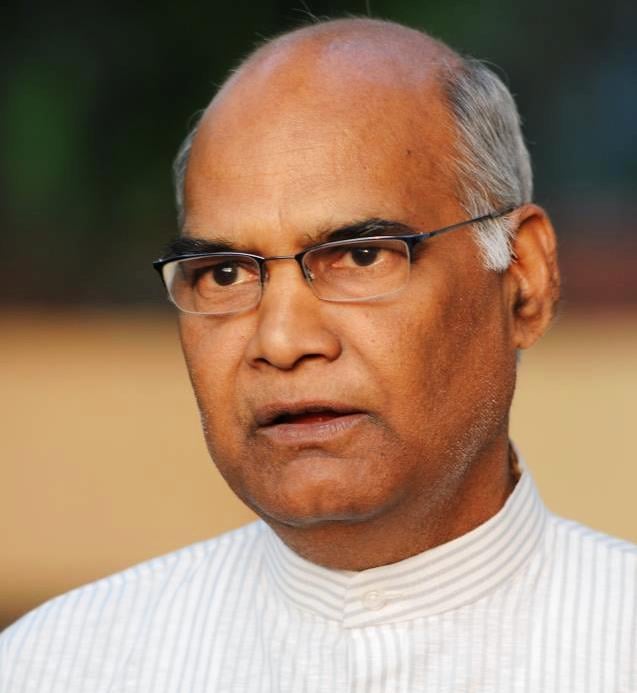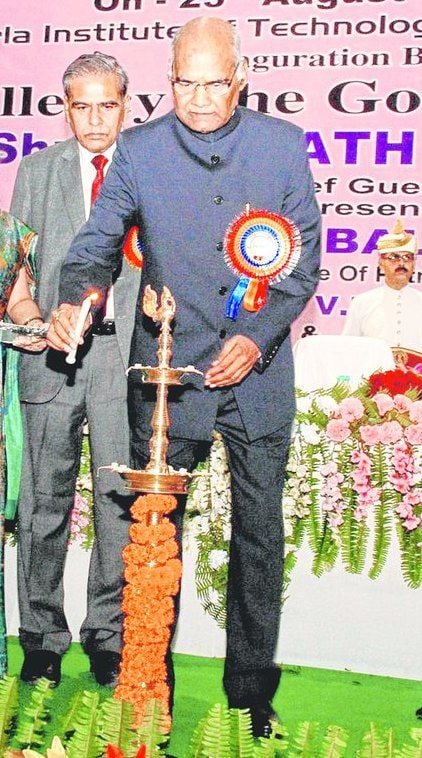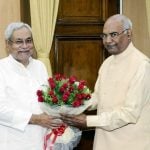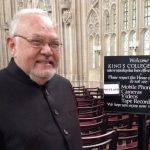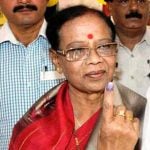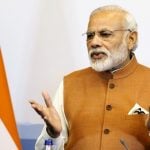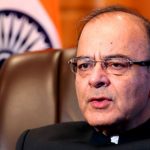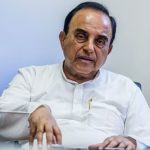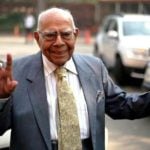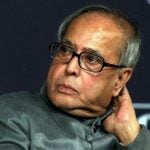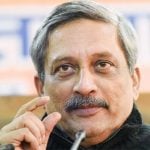Ram Nath Kovind Age, Wife, Children, Caste, Family, Biography & More
Quick Info→
Wife: Savita Kovind
Caste: Koli (Scheduled Caste)
Age: 79 Years
| Bio | |
| Profession | Politician, Advocate |
| Party | Bharatiya Janata Party (BJP)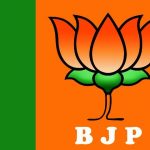 |
| Political Journey | 1991: He entered politics by joining BJP and contested the Lok Sabha election from Ghatampur constituency in Kanpur Nagar district, Uttar Pradesh, but lost. Later, he also contested an assembly election from Bhognipur constituency in Kanpur Dehat district, Uttar Pradesh and lost again. 1994: Elected as Rajya Sabha MP from Uttar Pradesh. 2000: Re-elected as Rajya Sabha MP from Uttar Pradesh. 2015: Appointed as the Governor of Bihar by the President of India. 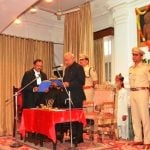 2017: On 20 June 2017, he resigned from the post of Governor of Bihar after his name was announced by the NDA as their nominee for the Presidential Election. 2017: On 25 July 2017, he took the oath as the 14th President of India. |
| Physical Stats & More | |
| Height (approx.) | in centimeters- 173 cm in meters- 1.73 m in Feet Inches- 5’ 8” |
| Weight (approx.) | in Kilograms- 68 kg in Pounds- 150 lbs |
| Eye Colour | Dark Brown |
| Hair Colour | White (Semi-bald) |
| Personal Life | |
| Date of Birth | 1 October 1945 (Monday) |
| Age (as of 2024) | 79 Years |
| Birthplace | Paraukh, Kanpur Dehat district, Uttar Pradesh, India |
| Zodiac sign | Libra |
| Nationality | Indian |
| Hometown | Paraukh, Kanpur Dehat district, Uttar Pradesh, India |
| College | Kanpur University, Kanpur |
| Educational Qualifications | B.Com LL.B. |
| Family | Father- Maiku Lal (Businessman, Vaidya or Practitioner of Ayurveda) Mother- Kalawati Brothers- 4 Sisters- 3 |
| Religion | Hinduism |
| Address | Raj Bhavan, Patna, Pin-800022, Bihar |
| Caste | Scheduled Caste (Koli - a weaver community) |
| Hobbies | Doing Yoga |
| Favourites | |
| Politicians | Atal Bihari Vajpayee, Narendra Modi |
| Leaders | Mahatma Gandhi, B.R. Ambedkar |
| Girls, Affairs and More | |
| Marital Status | Married |
| Wife/Spouse | Savita Kovind (Retired Government Employee, m.1974-present)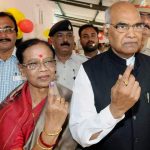 |
| Marriage Date | 30 May 1974 |
| Children | Son- Prashant Kumar Daughter- Swati (Works with Air India's Integration Department) 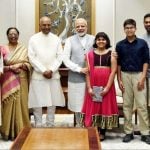 |
| Money Factor | |
| Salary/Pension (as ex-President of India) | Rs. 2.5 lakh/month + other allowances [1]Zee News |
| Net Worth (as of 2014) | Rs. 1.41 crore |
Some Lesser Known Facts About Ram Nath Kovind
- Ram Nath was born to a middle-class family in Paraukh village of Kanpur Dehat, which has a majority of Thakurs and Brahmins, with only 4 Dalit families in the village, including his family.
- His father was a “Chaudhary of Paraukh village”, a “Vaidya” (practitioner of ayurveda), an owner of a grocery and garment shops.
- He was a bright student who did his schooling from Khanpur town of Kanpur Dehat. Later, he moved to Kanpur city to pursue Commerce and Law from Kanpur University.
- After his graduation, he started preparing for the Civil Services examination in Delhi where he met ‘Jana Sangh’ leader, Hukum Chand (from Ujjain), after which he developed an interest in politics.
- He started his career as a lawyer and was enrolled as an Advocate in 1971 with the Bar Council of Delhi.
- From 1977 to 1979, he worked as a Central Government Advocate in Delhi High Court. During this period he also worked as a ‘personal assistant’ to the then Prime Minister of India, Morarji Desai.
- In 1978, he became an Advocate-on-Record of the Supreme Court of India.
- From 1980 to 1993, he worked as a Central Government Standing Counsel in Supreme Court.
- He practiced in Delhi High Court and Supreme Court for around 16 years. During this period, he played a pivotal role in providing free legal aid to the weaker sections of society, such as – SC/ST, women, needy and the poor under the aegis of “Free Legal Aid Society” in Delhi.
- In 1997, he joined the movement of SC/ST employees against the Central Government and eventually succeeded in getting those Government Orders, which were objectionable to the SC/ST employees, null and void by the passage of 3 Amendments to the Constitution of India during the first tenure of the NDA government.
- During his tenure as a Member of Parliament (MP), he worked for the upheaval of basic infrastructure for education in rural areas and construction of school buildings in Uttar Pradesh and Uttrakhand under MPLAD Fund.
- He was Member of following important Parliamentary Committees – Parliamentary Committee on Welfare of Scheduled Castes/Tribes, Parliamentary Committee on Home Affairs, Parliamentary Committee on Petroleum and Natural Gas, Parliamentary Committee on Social Justice and Empowerment, Parliamentary Committee on Law and Justice, and Chairman of Rajya Sabha House Committee.
- He was also a member of the Board of Management of Dr. B.R Ambedkar University, Lucknow, and Member of Board of Governors of Indian Institute of Management, Kolkata.
- In October 2002, he addressed the United Nations General Assembly in New York, representing India.
- He has also served as the national spokesperson of BJP.
- He was the former president of BJP ‘Scheduled Castes Morcha’ and ‘All-India Koli Samaj.’
- On 19 June 2017, BJP’s National President, Amit Shah, announced his name as NDA’s nominee for India’s Presidential Election.
- On 20 July 2017, after the counting of votes, he emerged victorious among the candidates. He defeated his closest rival, Meira Kumar, by securing 65% of total votes polled. He received 2930 votes with a value of 702044, whereas, Meira Kumar, received 1844 votes with a value of 367314.
- On 25 July 2017, he took the oath of office and secrecy by Chief Justice of India J S Khehar as the 14th President of India succeeding Pranab Mukherjee; he held the post till 24 July 2022 after Droupadi Murmu was elected as the 15th President of India.
- On 1 September 2023, Ram Nath was named as the head of the committee ‘One Nation One Election,’ which was established to align the time of Lok Sabha and State Assembly elections so that the frequency of polls in the country minimises. [2]Mint
References/Sources:

